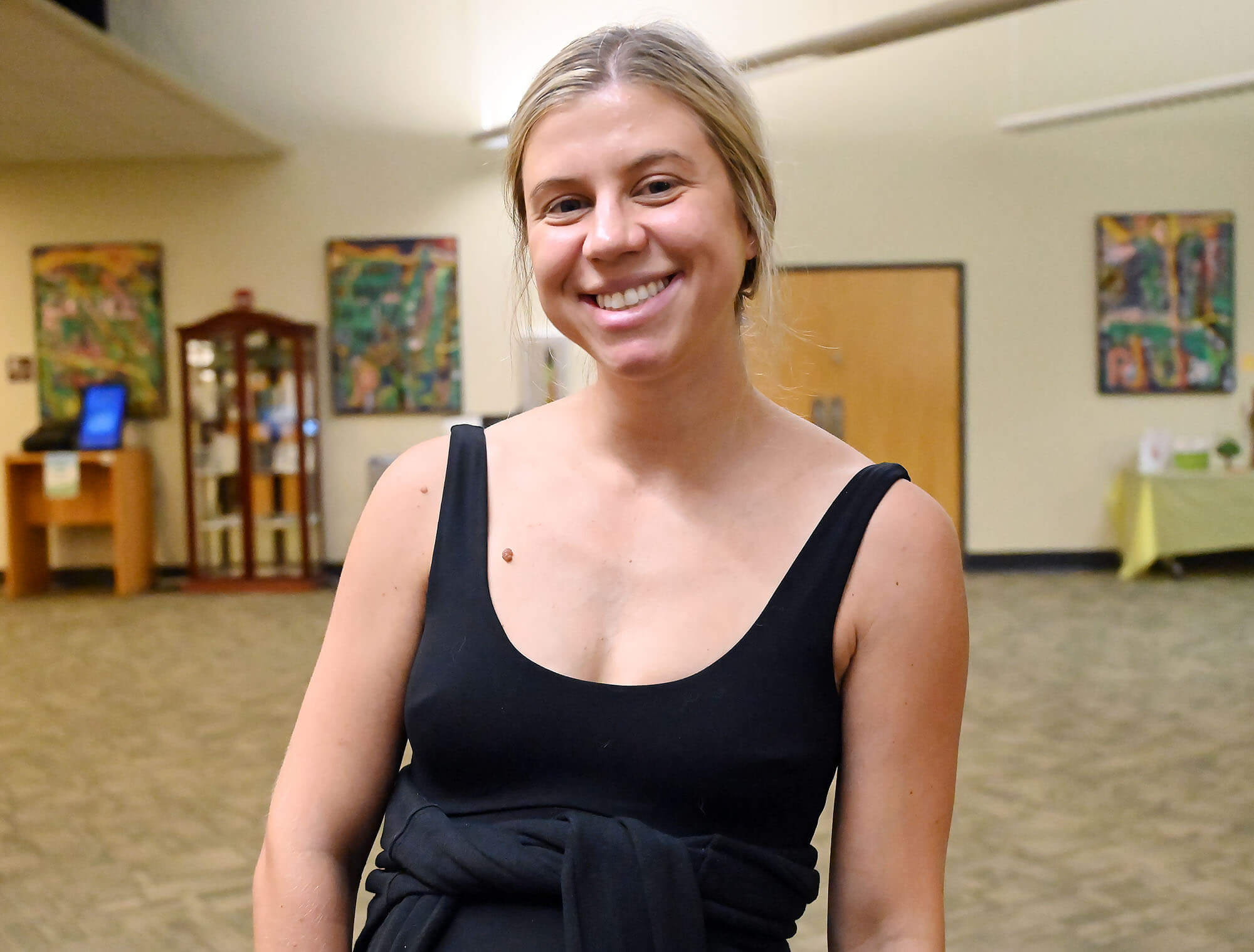

Sarah Tramel loves libraries. She visits them regularly, takes her daughter to storytimes and listens to audiobooks on Hoopla, an app that provides free access to ebooks, audiobooks, movies and other library material.
“Having a young toddler, it’s nice to be able to listen to audiobooks while you’re driving in the car, doing stuff like that,” said Tramel, 30, who works at Greater Belhaven Foundation in Jackson.

Back in April, a halt to federal funding caused many libraries to temporarily suspend or limit access to Hoopla. Though Tramel did not lose access, she said losing the app means she wouldn’t be able to read as much.
“It would make me very sad,” she said.
The Trump administration’s efforts to eliminate the Institute of Museum and Library Services caused the funding pause. The institute provides federal funding to museums and libraries across the country and is the largest source of federal funding for America’s libraries.
Funding was restored months ago, and federal courts blocked the administration’s efforts. But the federal government shutdown means that the agency’s future is still at risk.
“Sometimes you don’t know what you had until it’s gone,” said Jennifer Lena, deputy executive director of the Mississippi Library Commission. “And I don’t think a lot of people realize how many people don’t have access to the internet at home, especially in rural areas. I don’t think they understand how many people go to their libraries for support, for job searches, again to check out materials for those who can’t afford them.”
If the Institute of Museum and Library Services shuts down, libraries and their users in Mississippi would lose important services.

The Mississippi Library Commission distributes some of the money from the institute as subgrants. It uses the rest to help pay for many of the services libraries and their users rely on.
During the 2025 budget year, the Mississippi Library Commission received $2.1 million from the institute through the Grants to States program.
Without the federal infusion of funds, library users could lose free access to Hoopla, Talking Book Services, summer reading programs and more. Libraries could lose important resources such as consultants, training and professional development for library staff and technology support.
“Most of the cases … for them (libraries) to try to independently get those services, they would be significantly higher in cost,” Lena said. “So for many of them, the ability to get them back would just really not be there.”
If federal funding sharply decreases or goes away altogether, the commission would have to evaluate its services and decide what it can and can’t keep, based on what would have the most impact.
Mississippi’s libraries receive funding from state and local governments, as well as the federal government. Total funding for each library and library system varies, but small, rural libraries would be hit the hardest by potential cuts.
Patty M. Bailey, director of the Yalobusha County Public Library System, explained that the federal grant is “vital” to her library.

“In small, rural communities like those we serve, the library serves as a community center, a gathering spot for all ages,” she said.
It’s also a place where residents can access computers and the internet.
Emmaline Smith, 41, is a board member of JXN Friends of the Library. She said she and her family often use Hoopla and a similar app called Libby.
“Even if you don’t use the services yourself, there’s a lot of people in our community that really rely on them and need them,” Smith said.
Alivia Beckham, 18, has been going to Quisenberry Library in Clinton since she was in eighth grade. A student at Hinds Community College, she often uses the library to do schoolwork or meet with study groups.
“I love the library. I come here a lot. It’s my favorite thing to do, is just sit down and read for hours,” Beckham said. She also uses the digital archives for schoolwork, one of the services Lena cited as being at risk if federal funding goes away.
Zarah Drake, 30, lives in Jackson. He used to frequent the Eudora Welty Library downtown. When it shut down, he tried one other branch before finding his favorite, Quisenberry.
He’s been going to libraries for years, though he doesn’t get to visit the library as often because of work. He said he likes to read books and use the WiFi on his laptop.
“I think that libraries, they give us access to a wealth, a treasure trove of knowledge and information that we can utilize and apply in our everyday lives,” Drake said.

Caitlin Sewell, 29, who works as a protective blast engineer,said she uses the online catalog to reserve books and pick them up.
“There’s just so many books that you have access to,” she said. “I mean, I don’t want to have to pay for a book every single time I want to read a book.”
According to Jeanne Williams, executive director of the Jackson/Hinds system, losing support services from the commission would be “the most critical loss.”
The Jackson/Hinds system is working on a five-year revitalization effort. Williams said that without the commission’s support, the system would potentially have to spend money that could’ve gone toward revitalization on replacing the technology support services and consultants. It also would lose access to free training and support for staff and would have to reduce its ebook catalog.
“If Mississippians care about literacy, workforce development, economic health, access to technology and the internet and safe spaces for learning and community connection, then they should care deeply about libraries,” Williams said.
- Scientists: Genetic analysis could speed restoration of American chestnut trees, from Maine to Mississippi - February 14, 2026
- NAACP threatens to sue Elon Musk’s xAI over pollution in Mississippi - February 13, 2026
- School consolidation bill dies without a vote in Mississippi Senate - February 13, 2026